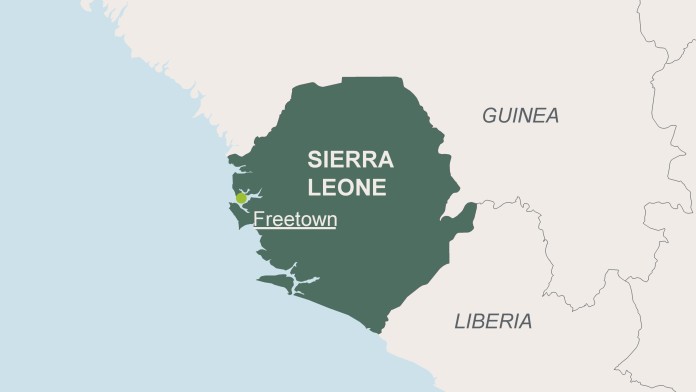
Sierra Leone has reached a low level of economic stabilisation since the civil war, which lasted for a decade, ended in 2002. The country is still in the phase of transitioning to lasting peaceful structures. The West African country’s economy is dominated by exports of natural resources, especially iron ore.
The majority of the population farm their smallholdings with a view to self-sufficiency. Cocoa and coffee are cultivated for commercial sales. For the remainder, many goods have to be imported.
The beginning of the economic recovery was set back by the Ebola pandemic and the subsequent coronavirus pandemic. Overcoming these crises meant that Sierra Leone’s enormous efforts were lost. Many people became unemployed and found themselves in severe need. To date, the country remains one of the poorest in the world. The infrastructure is poorly developed, both in terms of hospitals and schools, as well as in terms of roads, electricity supply, water supply and wastewater disposal. Maternal and child mortality rates are extremely high, with a majority of adults unable to read or write. Women and girls are often severely disadvantaged compared to men. The human development index of the UN Human Development Programme (UNDP) ranks the country 182nd out of 189 countries.
On behalf of the German Federal Government, KfW is involved in projects in the following areas:
On behalf of the Federal Ministry for Economic Cooperation and Development (BMZ), KfW Development Bank has been promoting projects in Sierra Leone since 2006 that help to contain HIV infections. At the same time, efforts are underway to strengthen the position of women in society and to promote self-determined family planning. These include awareness-raising measures relating to HIV/AIDS, unwanted pregnancies, gender-specific violence and female genital mutilation, which is widespread throughout the region.
Since the Ebola epidemic in western Africa in 2014–2015, KfW has further helped strengthen the country’s epidemic control capacity, which also facilitated the response to COVID-19. KfW helped to increase storage and cooling facilities for medicines and vaccines.
Stabilising societal cohesion remains an important task. The danger of social conflicts is great. On behalf of the BMZ, KfW promotes the development of economic infrastructure, for instance, the construction of roads, wells and grain storage facilities. Unemployed young people are involved in the construction measures so that they can earn an income and improve their living conditions. The new infrastructure facilitates trade in agricultural products such as rice.
KfW is supporting Sierra Leone in its efforts to initiate sustainable development and improve the living conditions of the population in spite of all the challenges and setbacks.
KfW Development Bank
+49 69 74 31-42 60